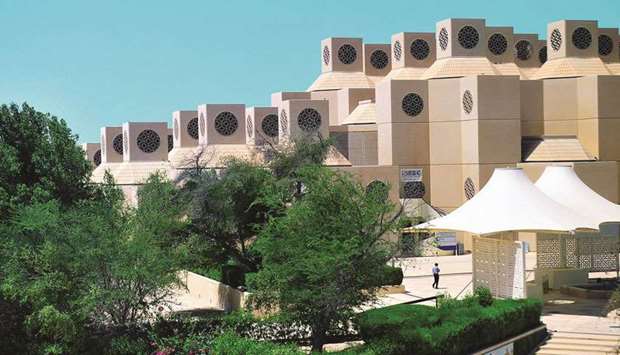Qatar University’s College of Engineering (QU-CENG) announced the launch of Covid-19 Global Virtual Design & Innovation Competition under the theme of “Re-Engineer the Future of Healthcare and Improve Lives - Design with Impact”.
Entries can be submitted until June 25.The shortlisted applications will be announced on August 20 and the winners on September 24. There will be an international virtual exhibition on October 20.
Dr Khalid Kamal Naji, dean of QU-CENG said, “This competition aims to contribute to the reduction of the Coronavirus (Covid-19) effect, and contribute to the United Nations (SDG) Goals -“Ensure healthy lives and promote well-being for all at all ages”, UN Sustainable Development Goal (SDG) No. 3”.
“This global virtual challenge aims to push the boundaries of design and product innovation in healthcare to solve a prevalent global health issues. We are looking for out of the box ideas that works now and in the future, as well as solutions that can be scaled-up to improve and enhance patients’ experiences. This challenge ends with a unique, international exhibition of all shortlisted designs” he added.
Prof Abdelmagid Hammuda, associate dean for Academic Affairs at CENG said, “Our priority is to create an environment that fosters collaboration to allow the best possible designs to see the light. The winning design should support Covid-19 patients anywhere in the world. We are committed to accompany the teams as they work towards meeting the challenge requirements by providing them with technical, engineering, materials and compliance experts who will actively support them in their design”.
Design topics includes mobile apps that address and dive into real-life patient Covid-19 cases related to healthcare such as; emergency dispatch; remote healthcare; crowd management and census; profiling the spread among clusters and communities; deep data analysis; security on and off premise cyber assets; and outreach to inspire communities. Participants could make non-chemical based disinfection devices or 3D-Technology to build things like ventilator valves, breathing filters and customisable facemasks, etc. to prevent further spread of the virus. The design files for these parts can be produced anywhere in the world to help end-customers bridge potential supply chain interruptions.
Participations can cover designs of smart healthy mobile buildings hosting healthcare facilities. A fast-assembled/disassembled, low cost and user-friendly “buildings” that can accommodate infected and cured patients with 0-contagion risk. While providing wellbeing, comfort and healing atmosphere through adequate spatial, artistic and architectural considerations the design of such buildings should be contagion-proofed.
Dr Khalid Kamal Naji, dean of QU-CENG said, “This competition aims to contribute to the reduction of the Coronavirus (Covid-19) effect, and contribute to the United Nations (SDG) Goals -“Ensure healthy lives and promote well-being for all at all ages”, UN Sustainable Development Goal (SDG) No. 3”.
“This global virtual challenge aims to push the boundaries of design and product innovation in healthcare to solve a prevalent global health issues. We are looking for out of the box ideas that works now and in the future, as well as solutions that can be scaled-up to improve and enhance patients’ experiences. This challenge ends with a unique, international exhibition of all shortlisted designs” he added.
Prof Abdelmagid Hammuda, associate dean for Academic Affairs at CENG said, “Our priority is to create an environment that fosters collaboration to allow the best possible designs to see the light. The winning design should support Covid-19 patients anywhere in the world. We are committed to accompany the teams as they work towards meeting the challenge requirements by providing them with technical, engineering, materials and compliance experts who will actively support them in their design”.
Design topics includes mobile apps that address and dive into real-life patient Covid-19 cases related to healthcare such as; emergency dispatch; remote healthcare; crowd management and census; profiling the spread among clusters and communities; deep data analysis; security on and off premise cyber assets; and outreach to inspire communities. Participants could make non-chemical based disinfection devices or 3D-Technology to build things like ventilator valves, breathing filters and customisable facemasks, etc. to prevent further spread of the virus. The design files for these parts can be produced anywhere in the world to help end-customers bridge potential supply chain interruptions.
Participations can cover designs of smart healthy mobile buildings hosting healthcare facilities. A fast-assembled/disassembled, low cost and user-friendly “buildings” that can accommodate infected and cured patients with 0-contagion risk. While providing wellbeing, comfort and healing atmosphere through adequate spatial, artistic and architectural considerations the design of such buildings should be contagion-proofed.

